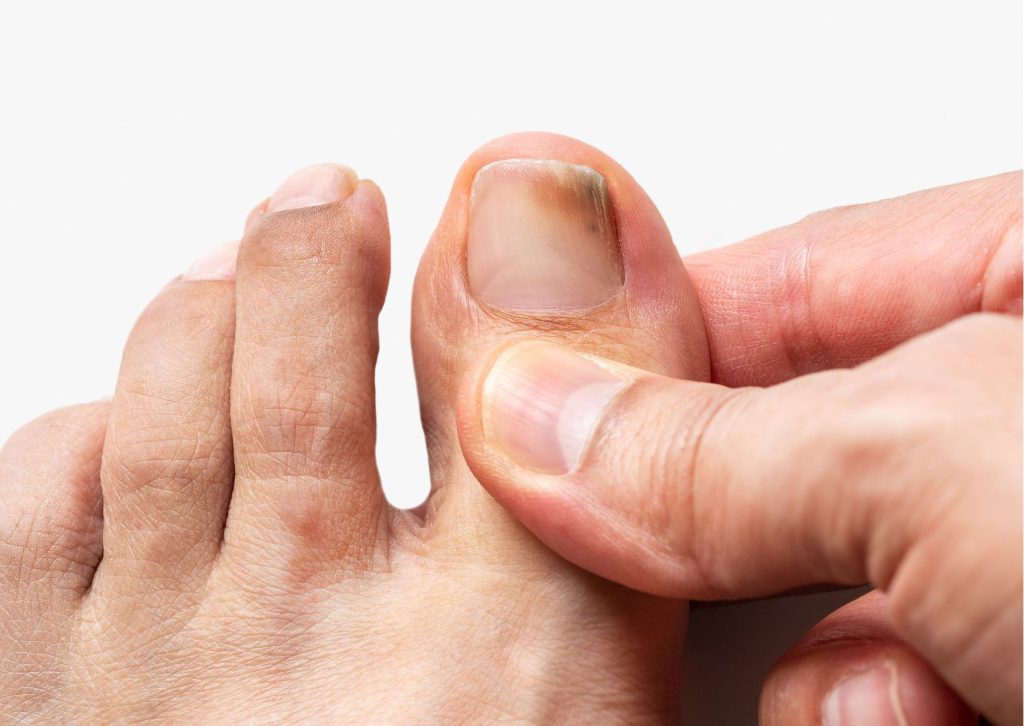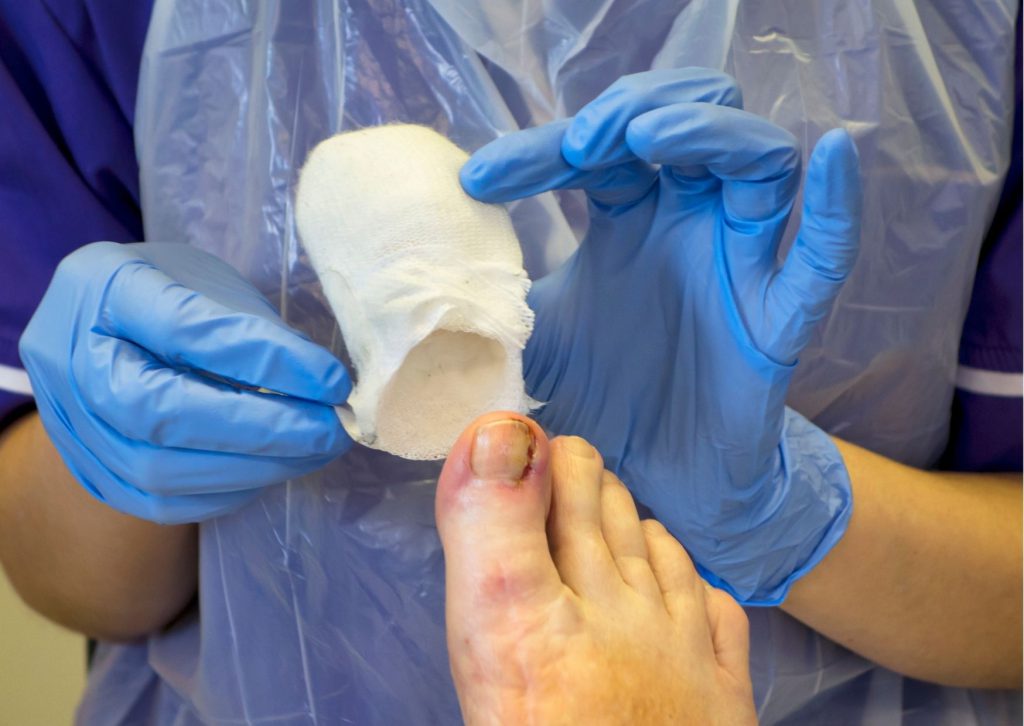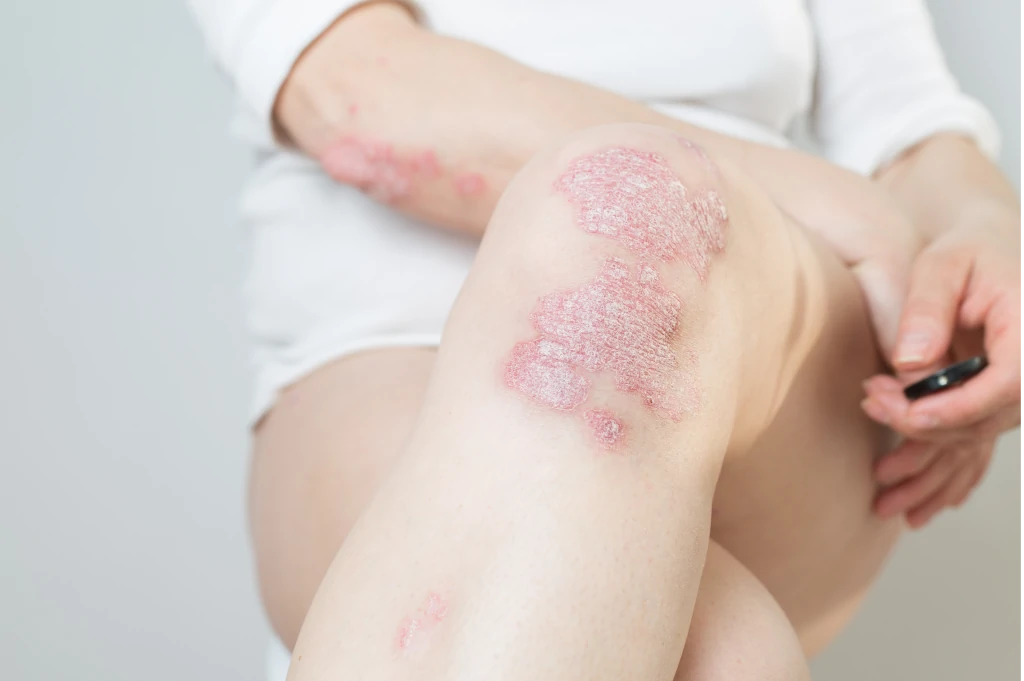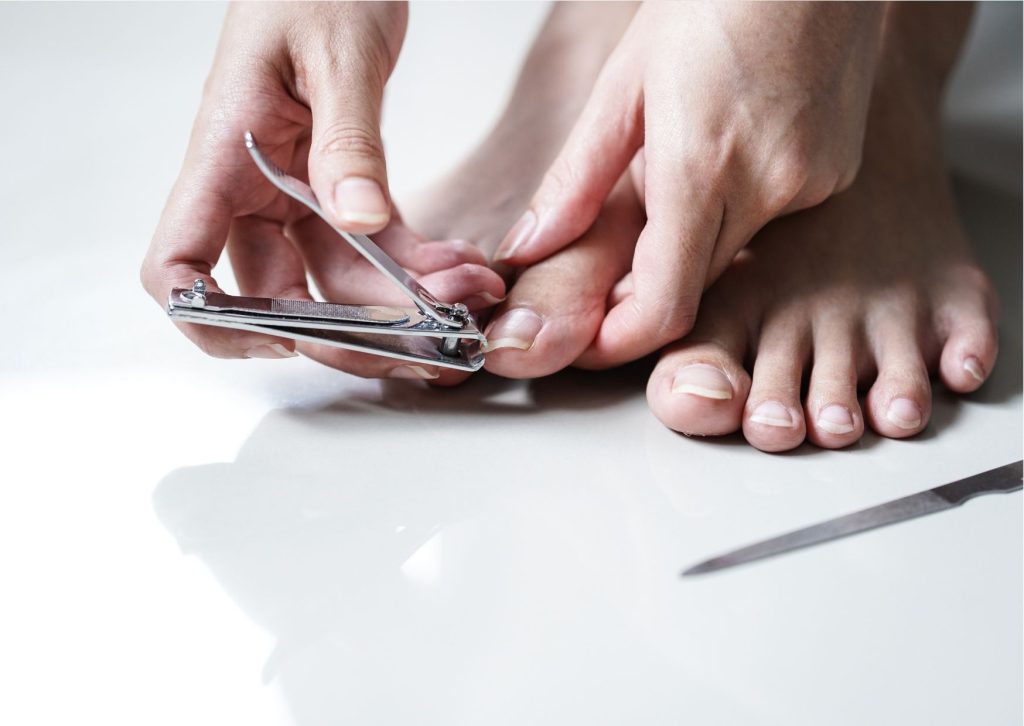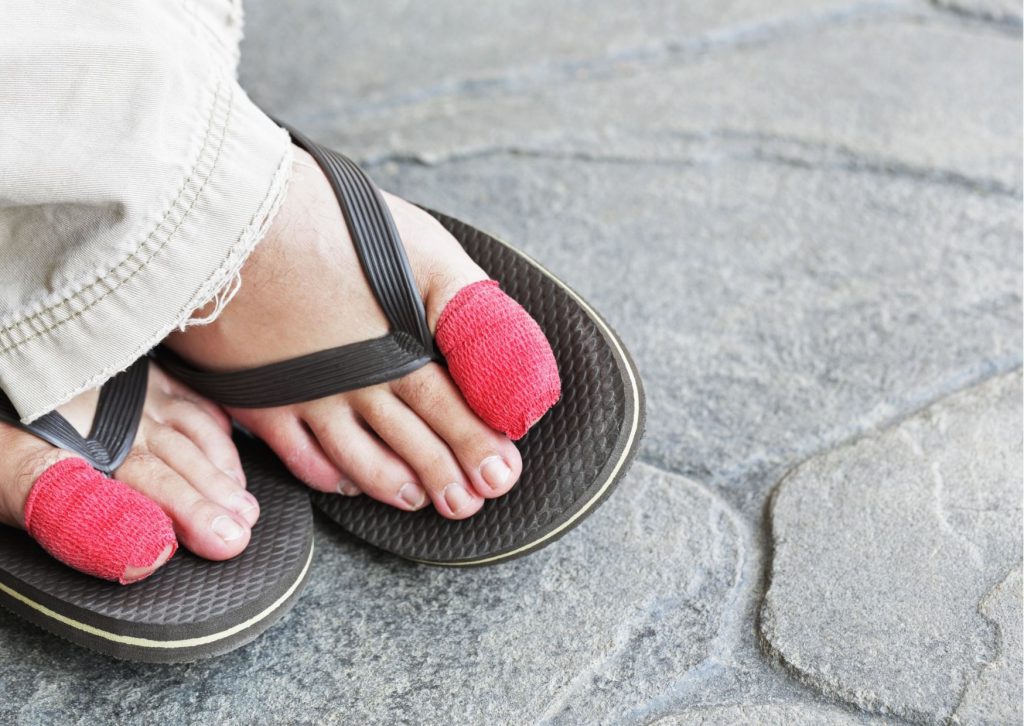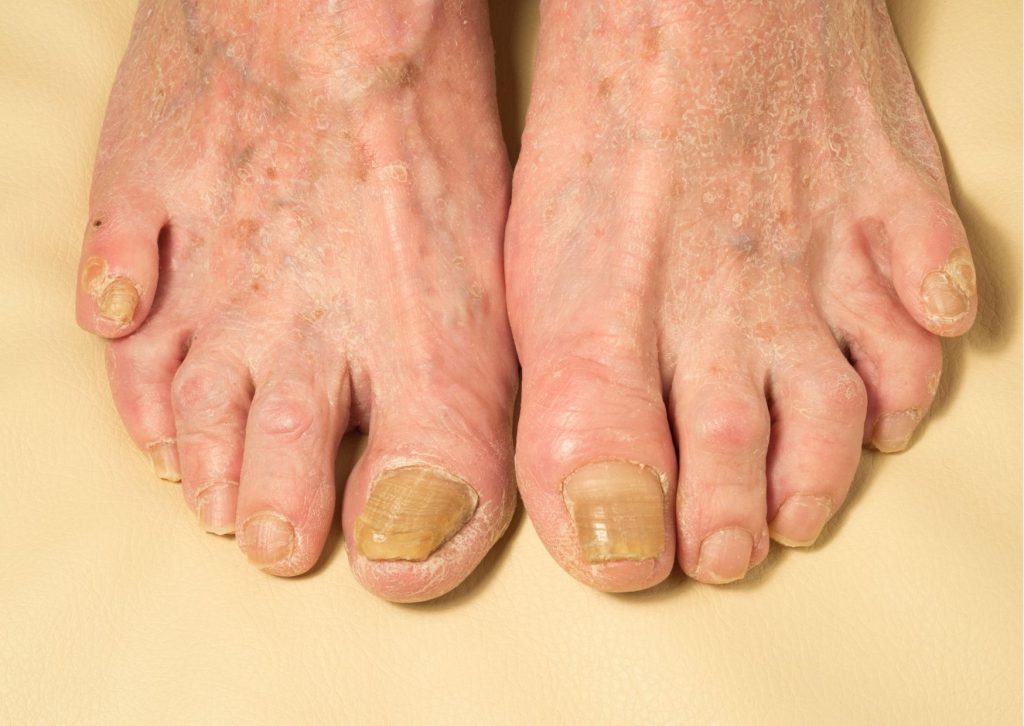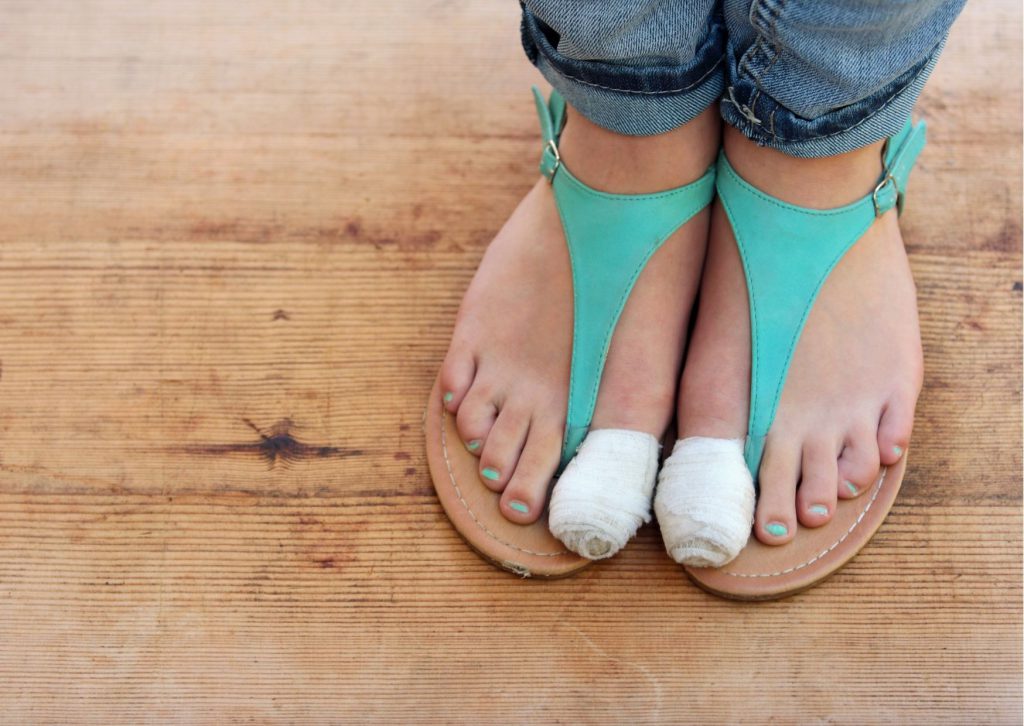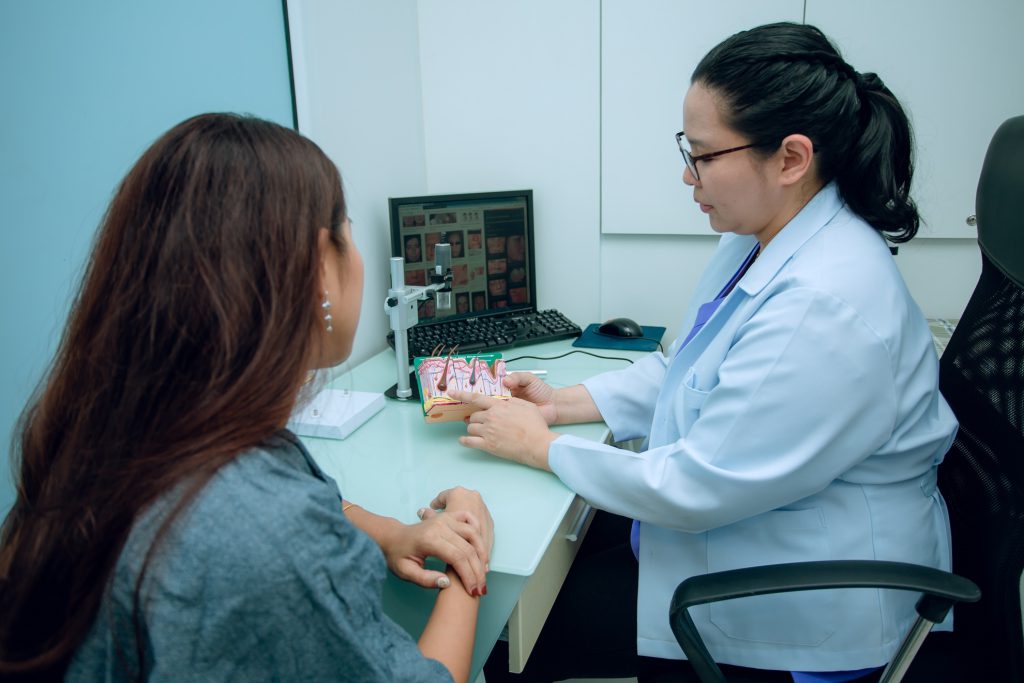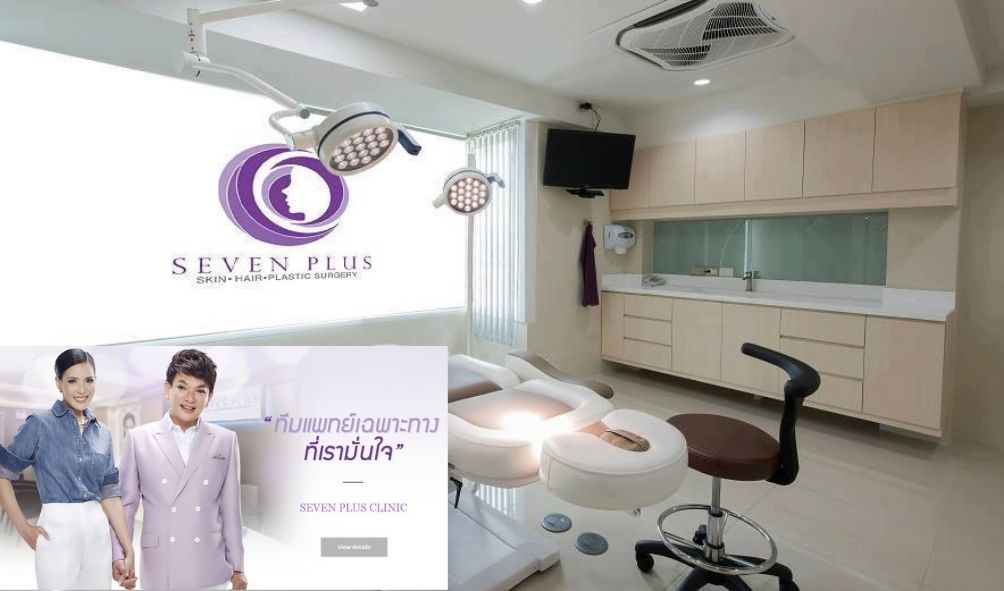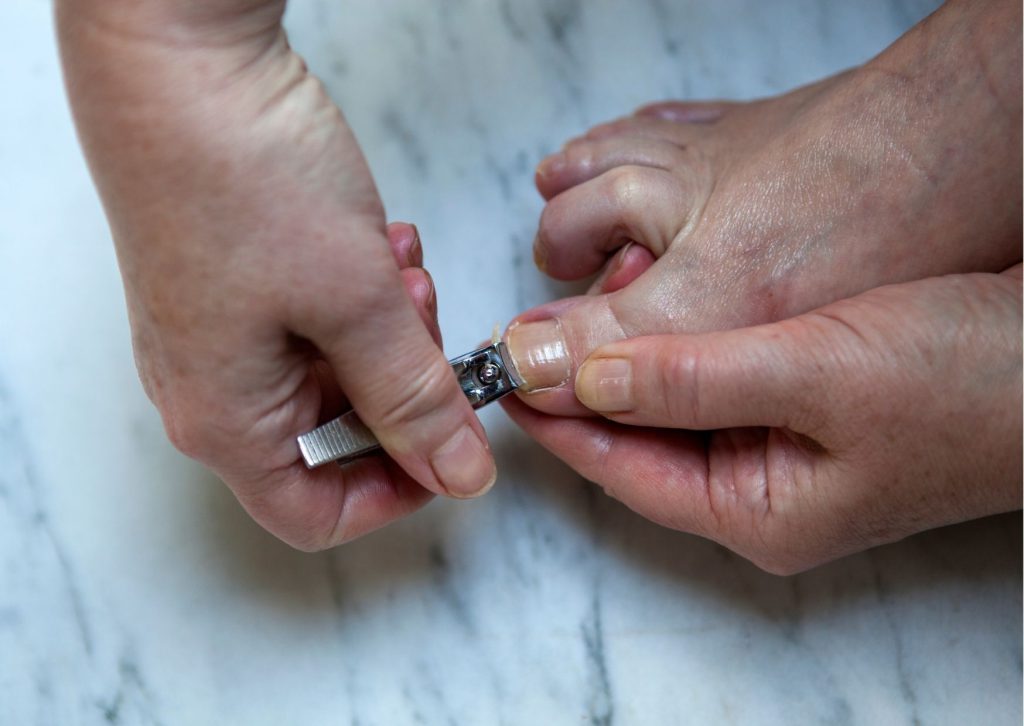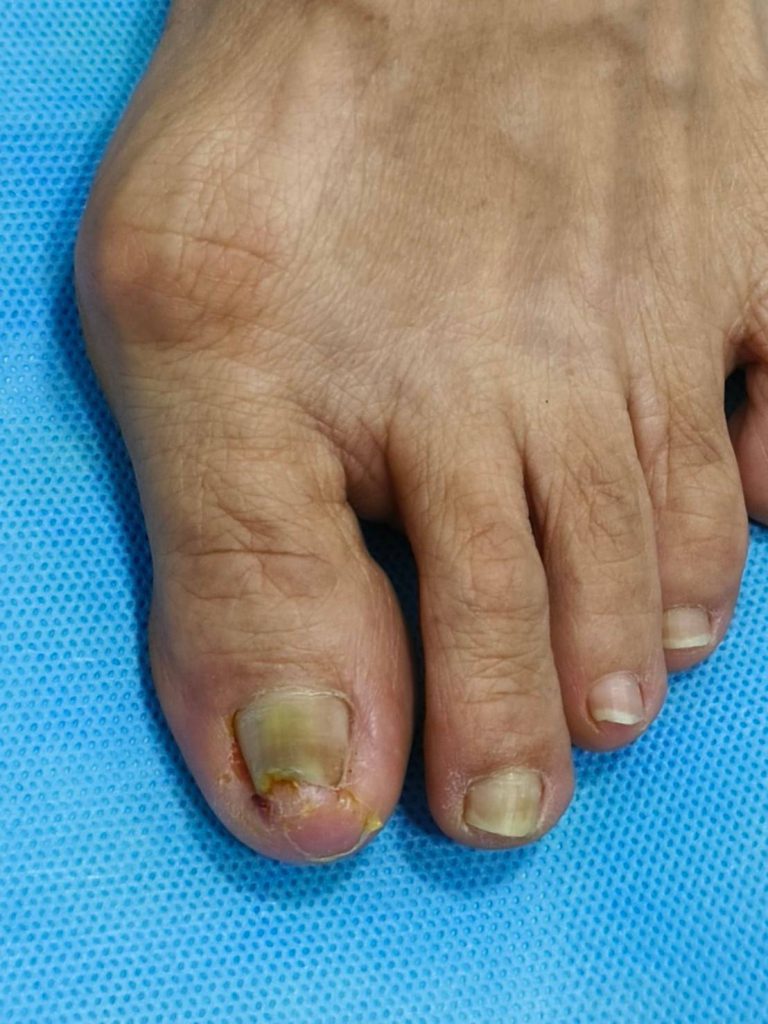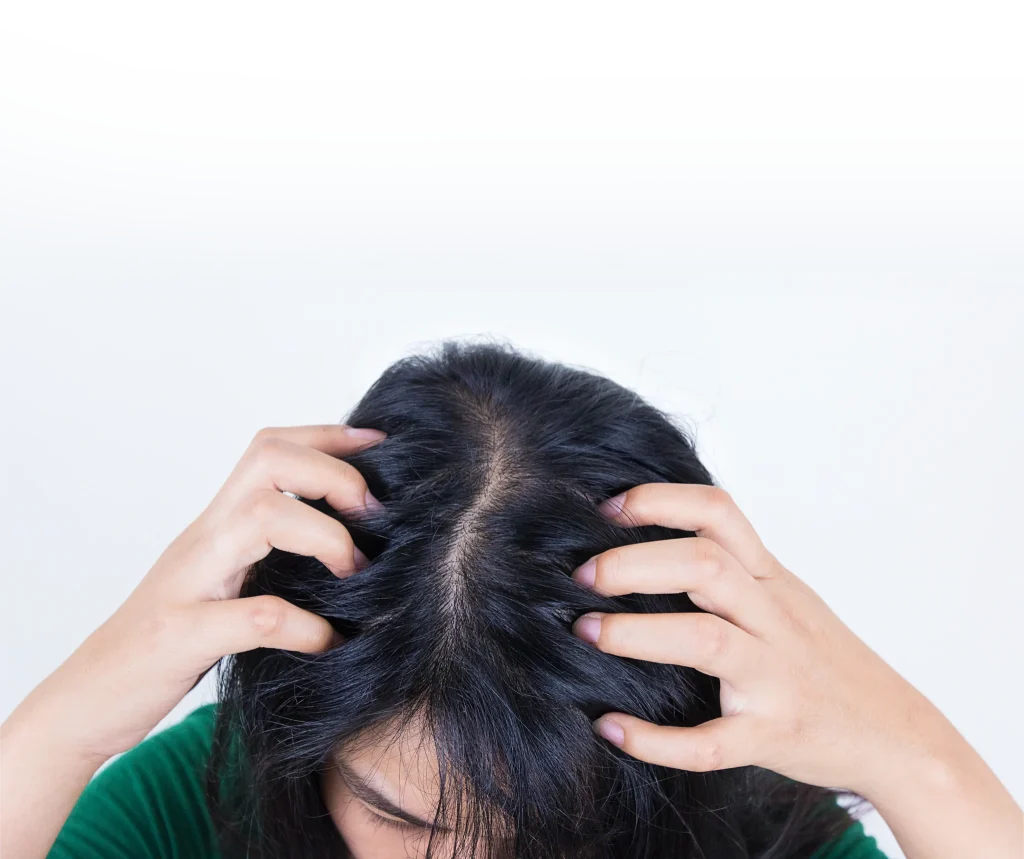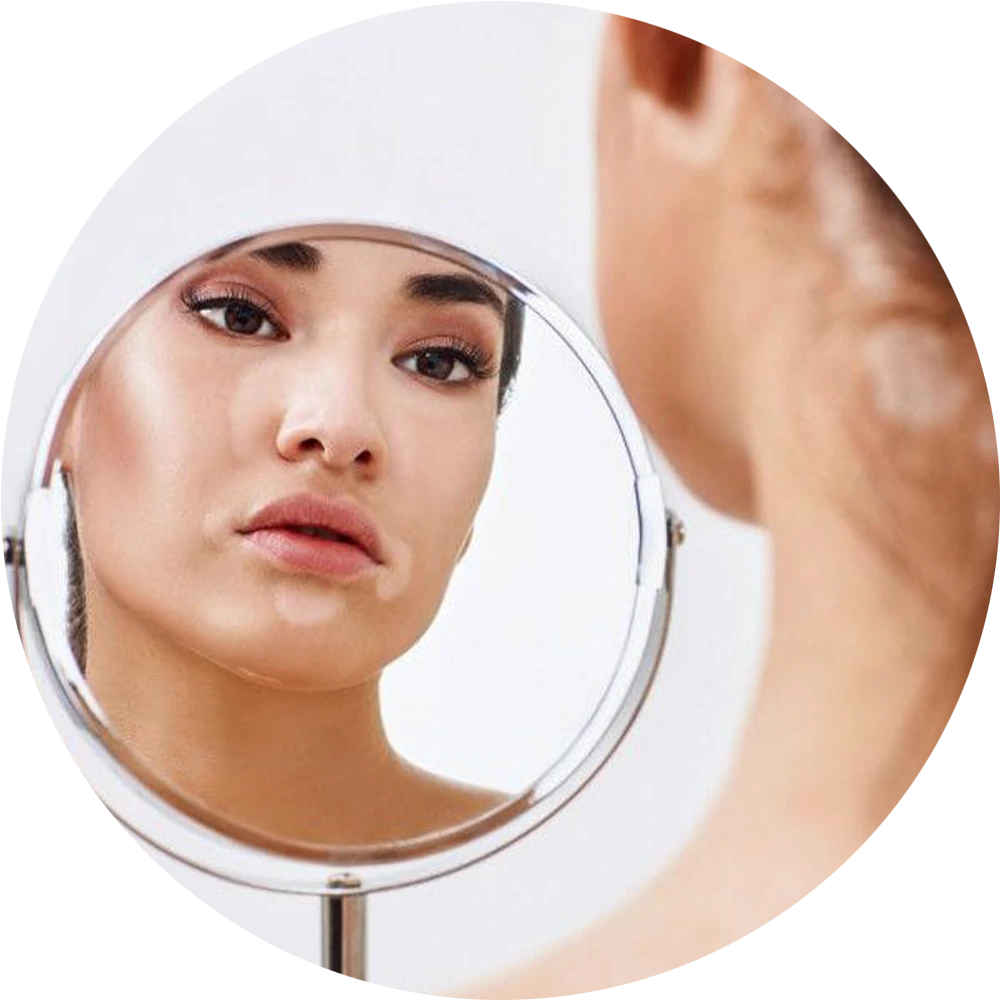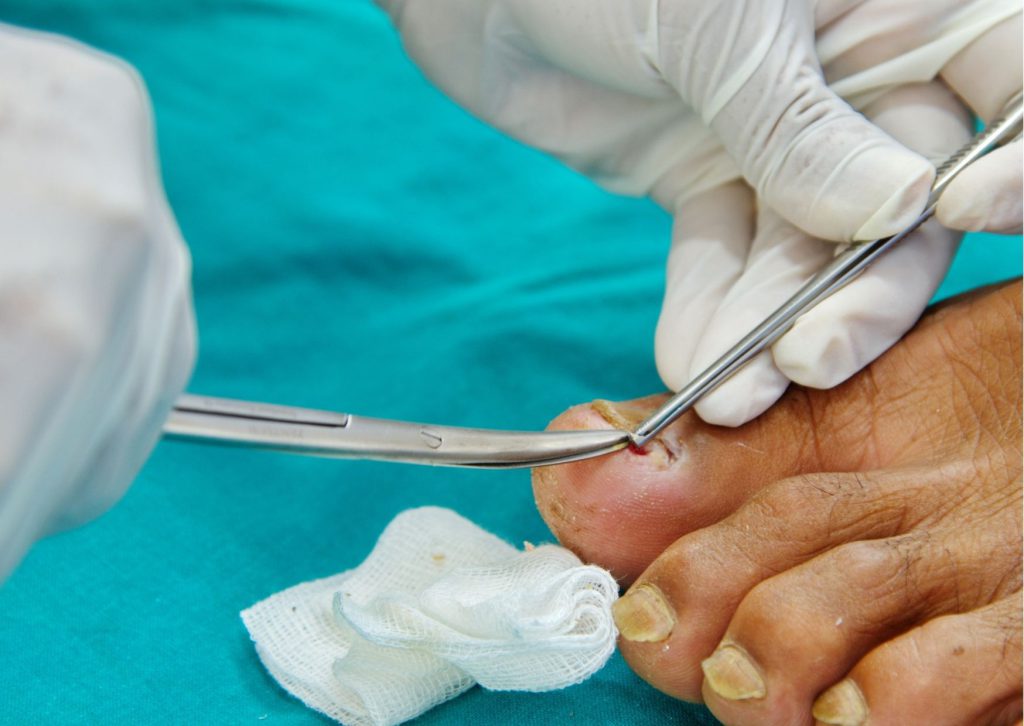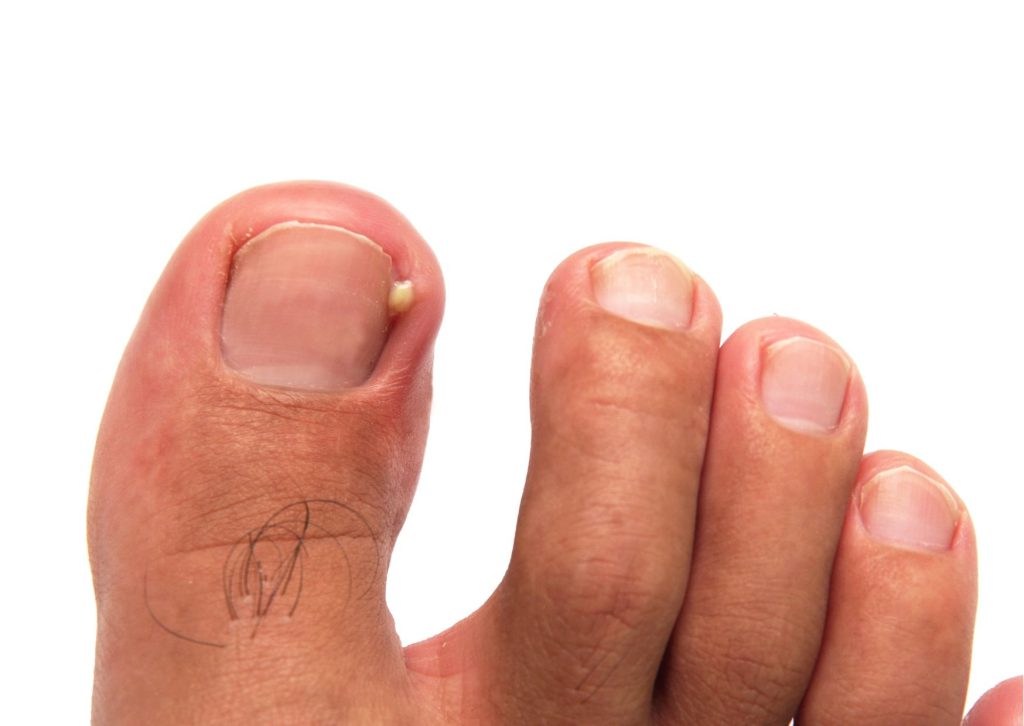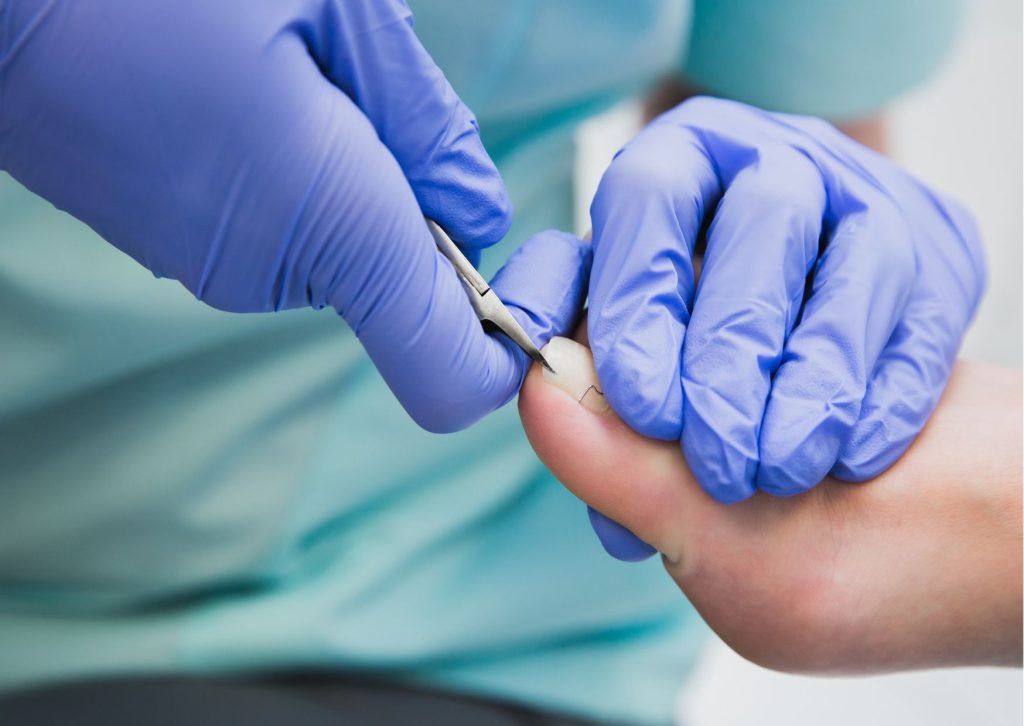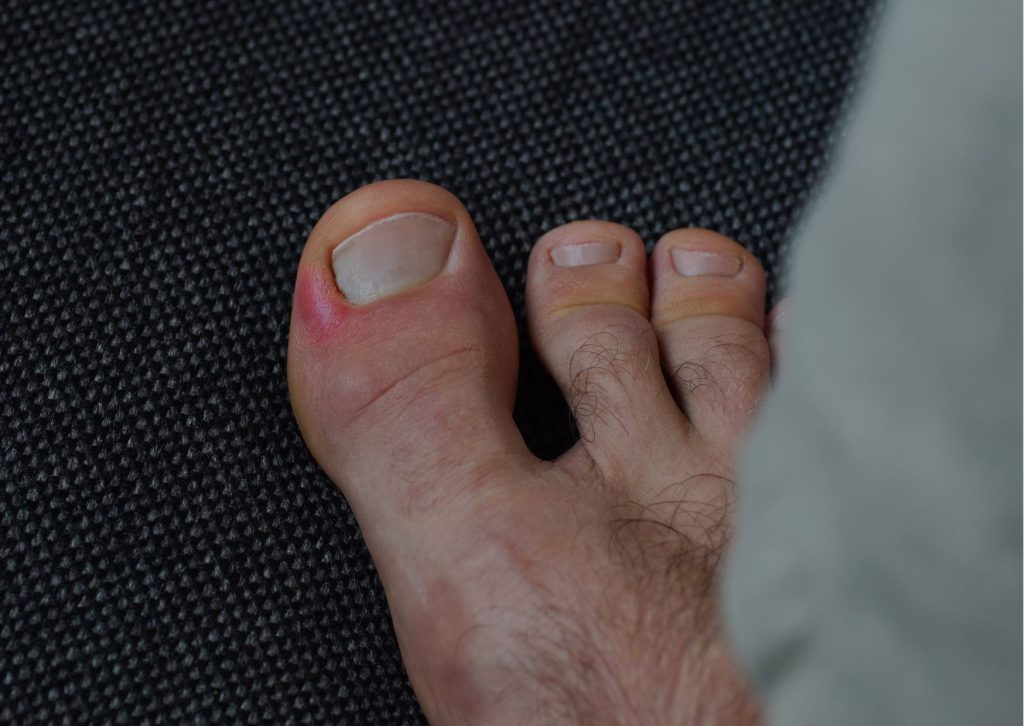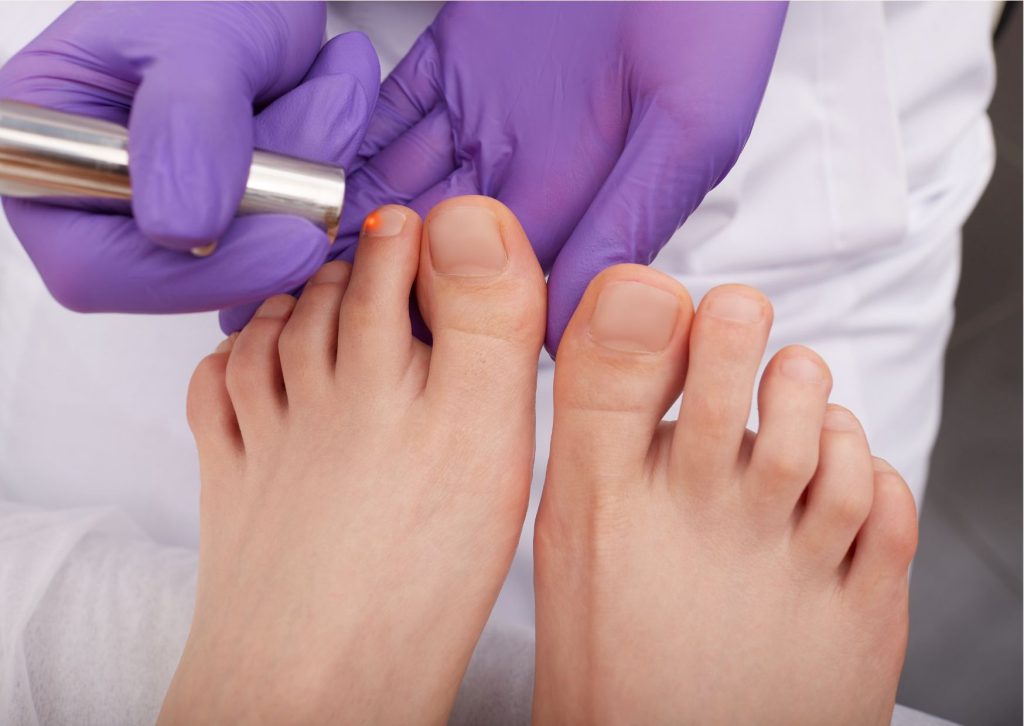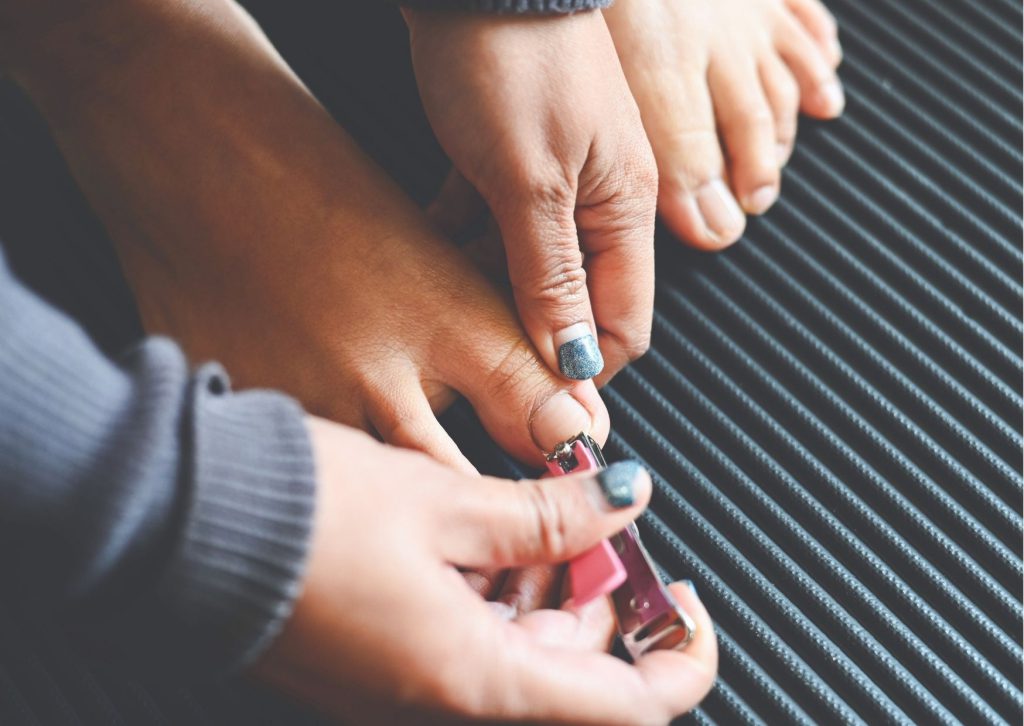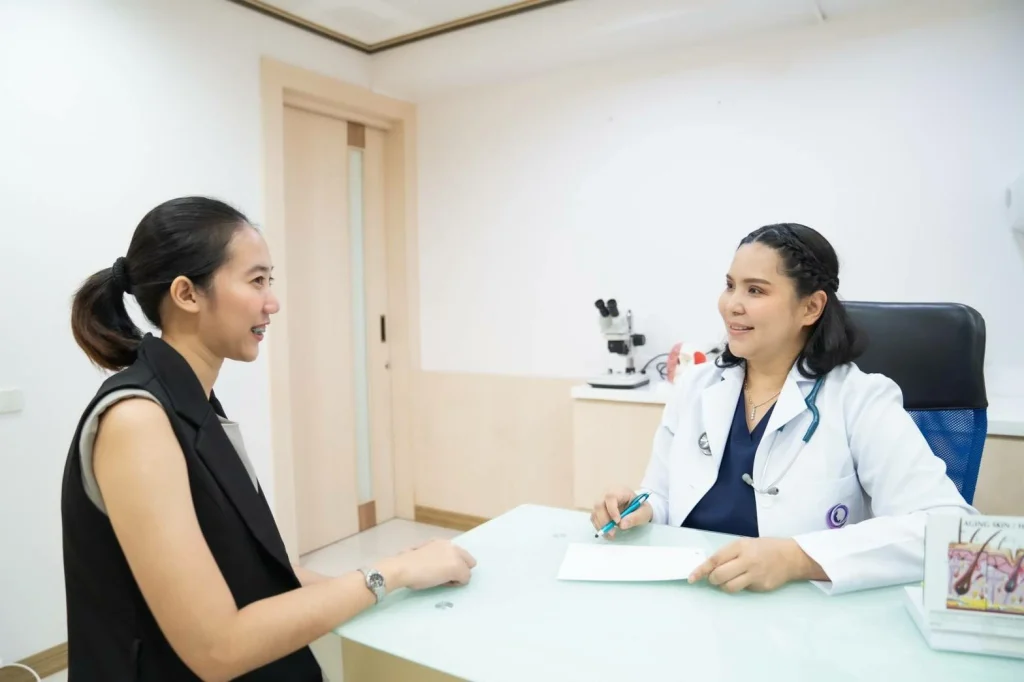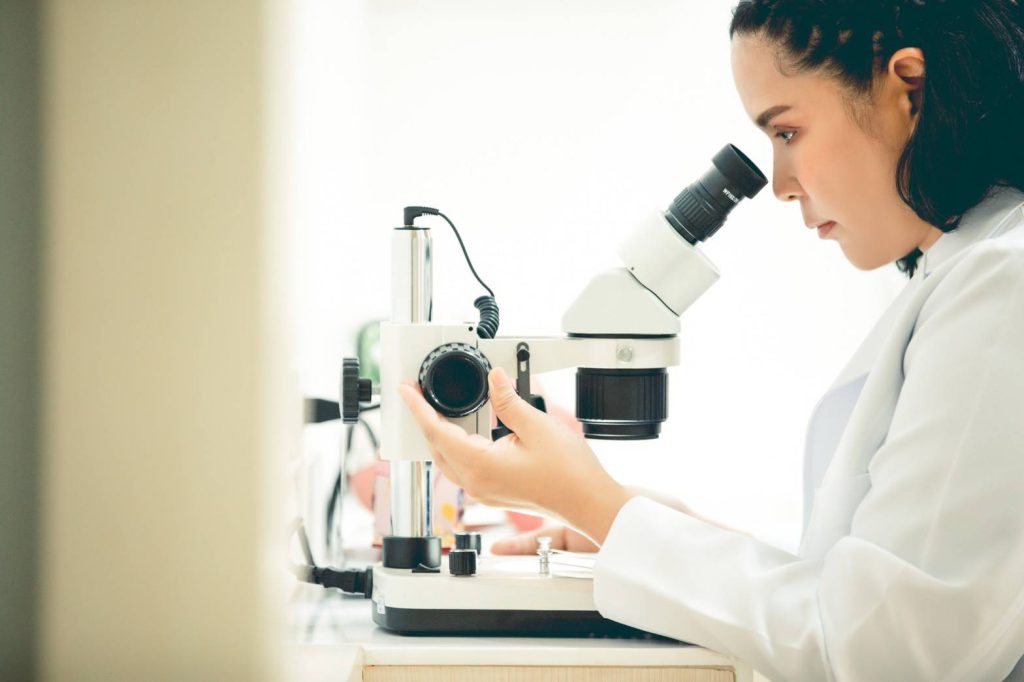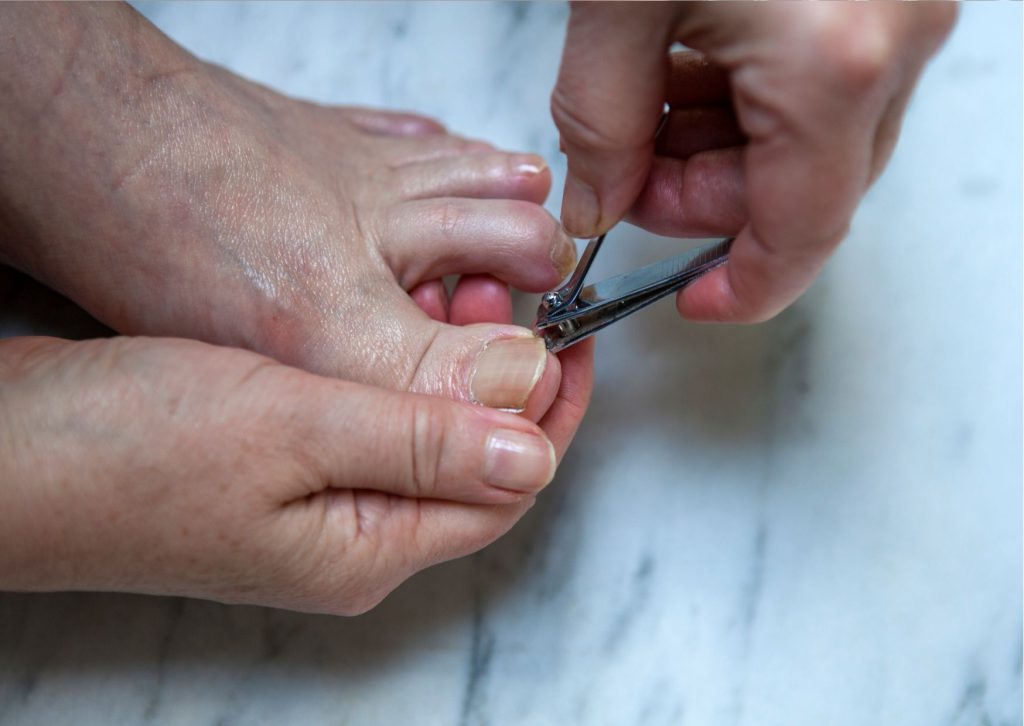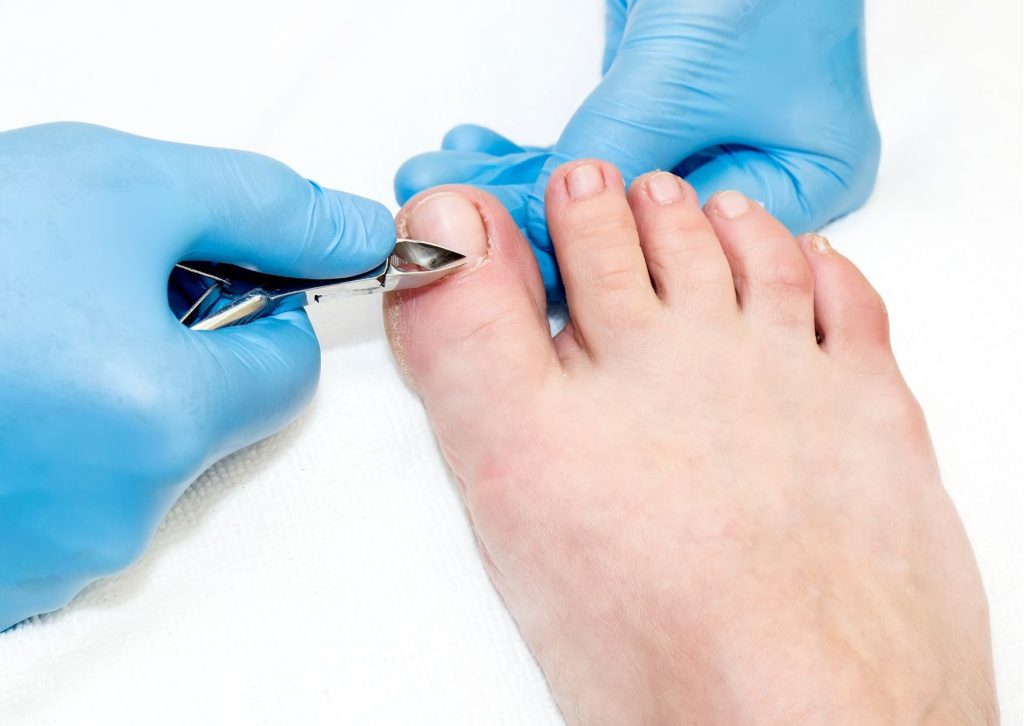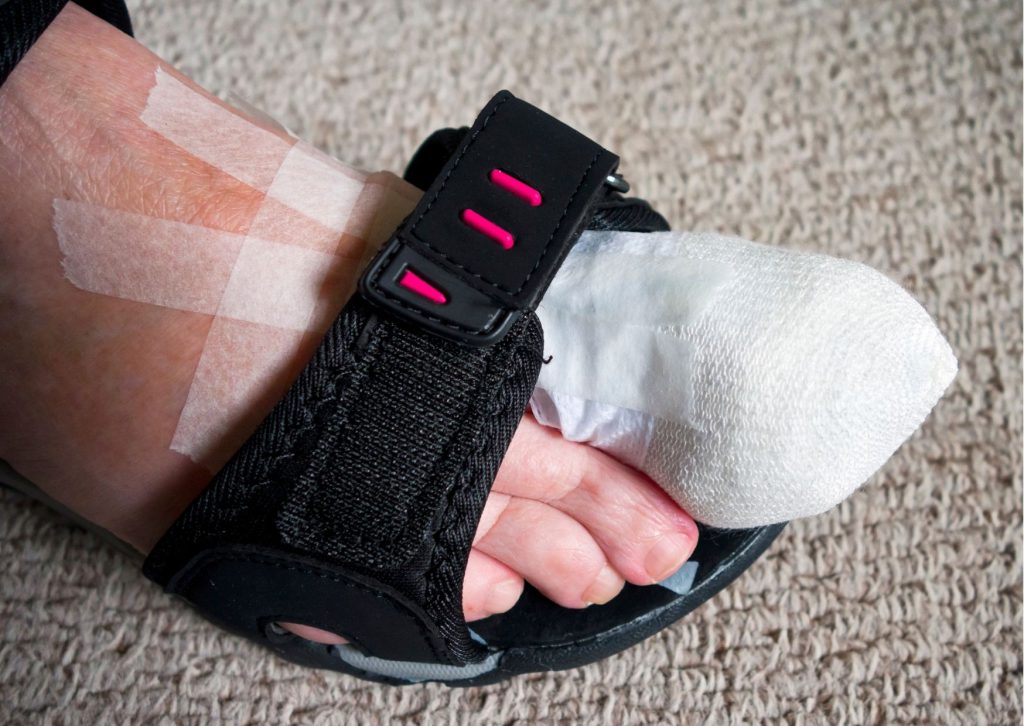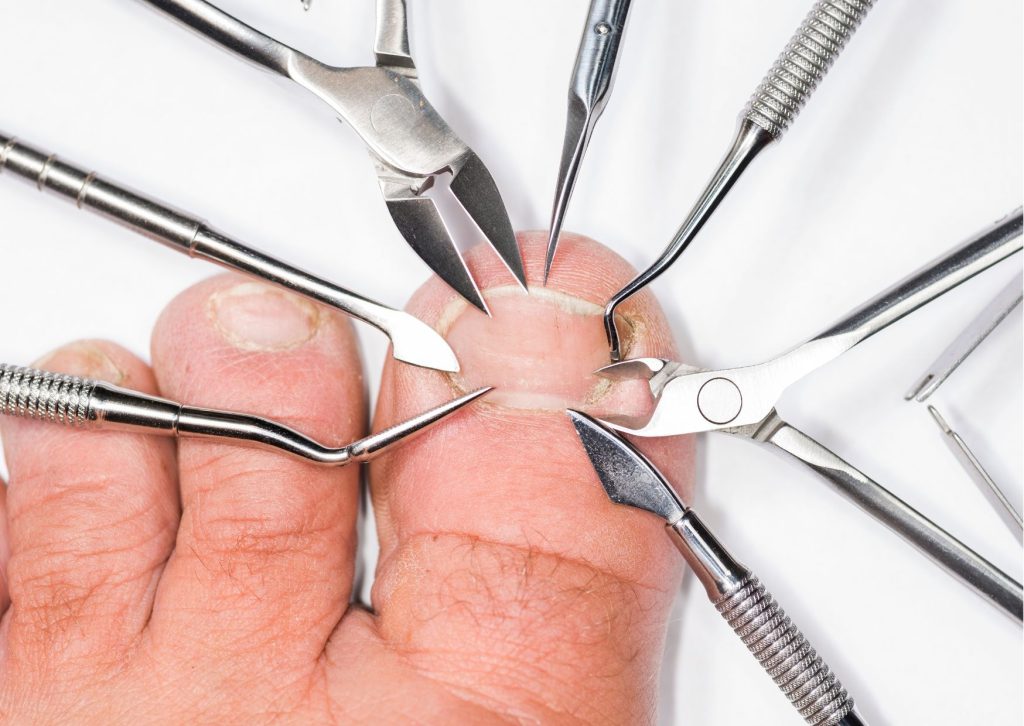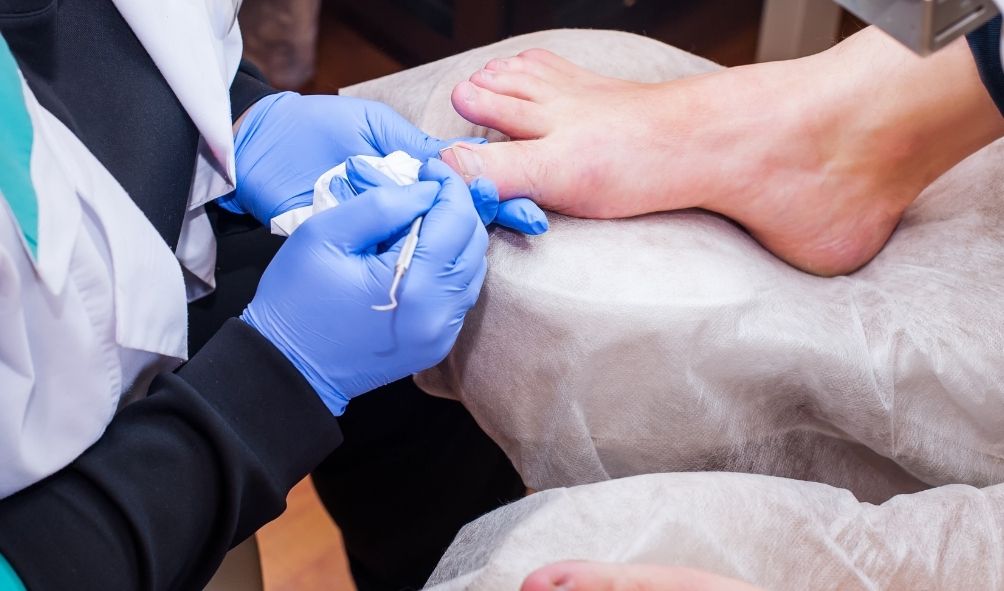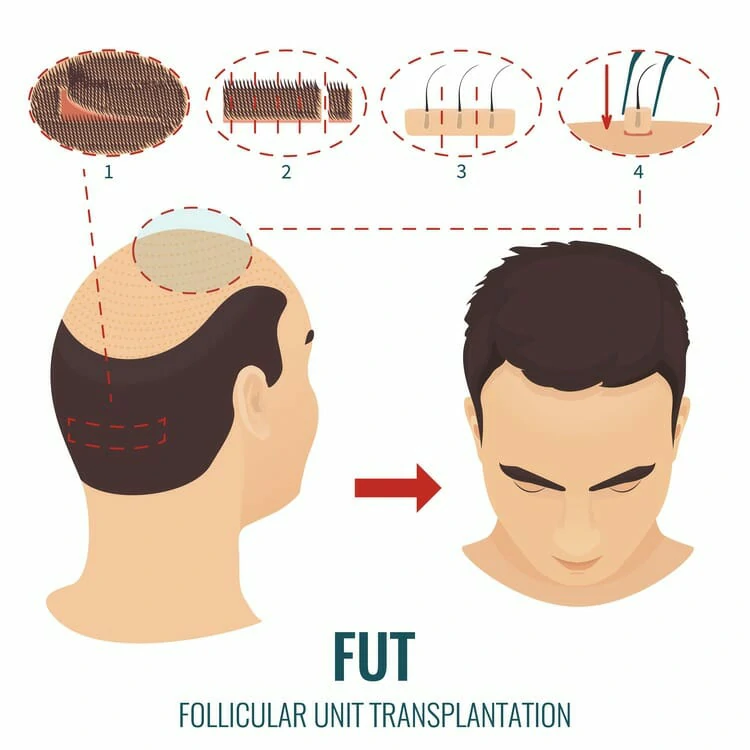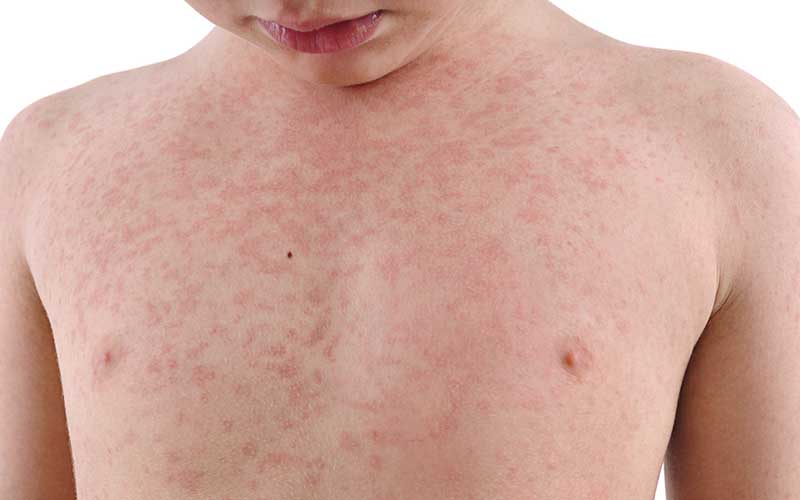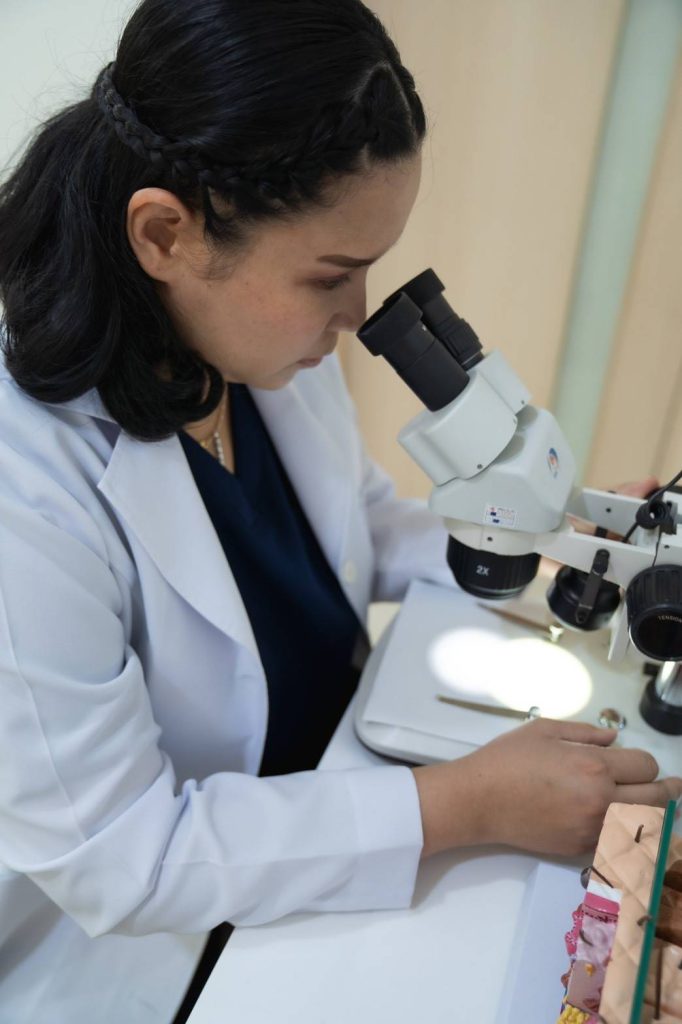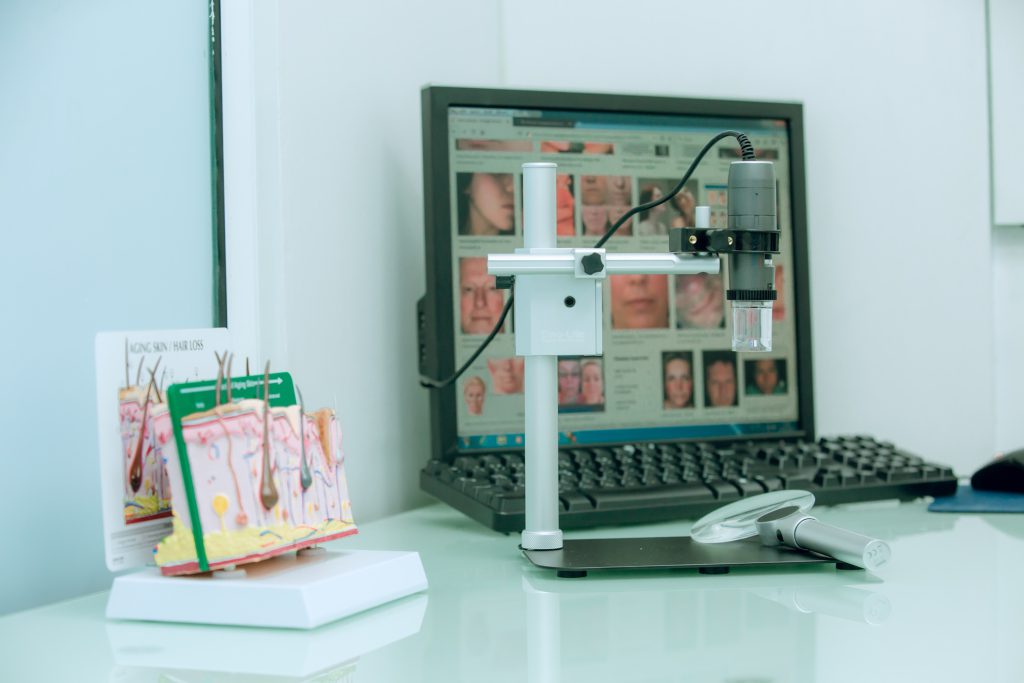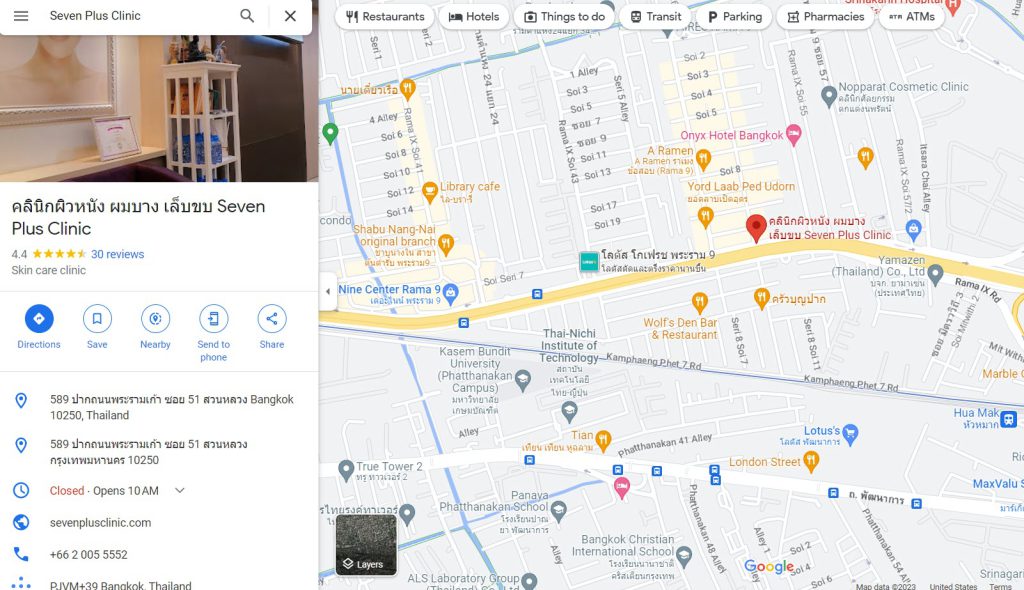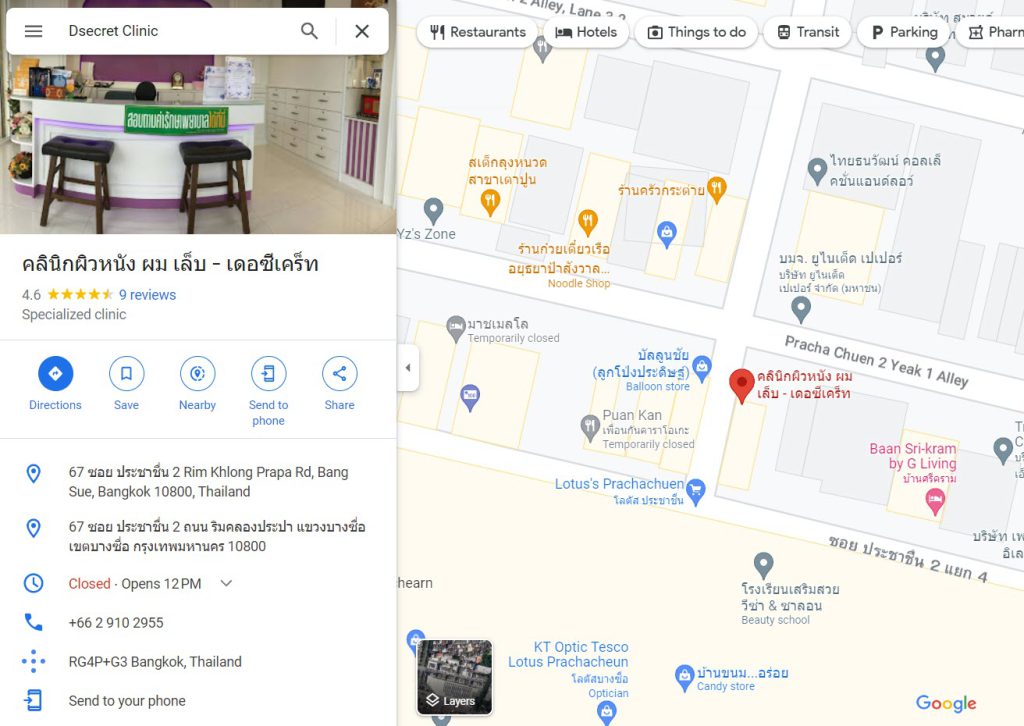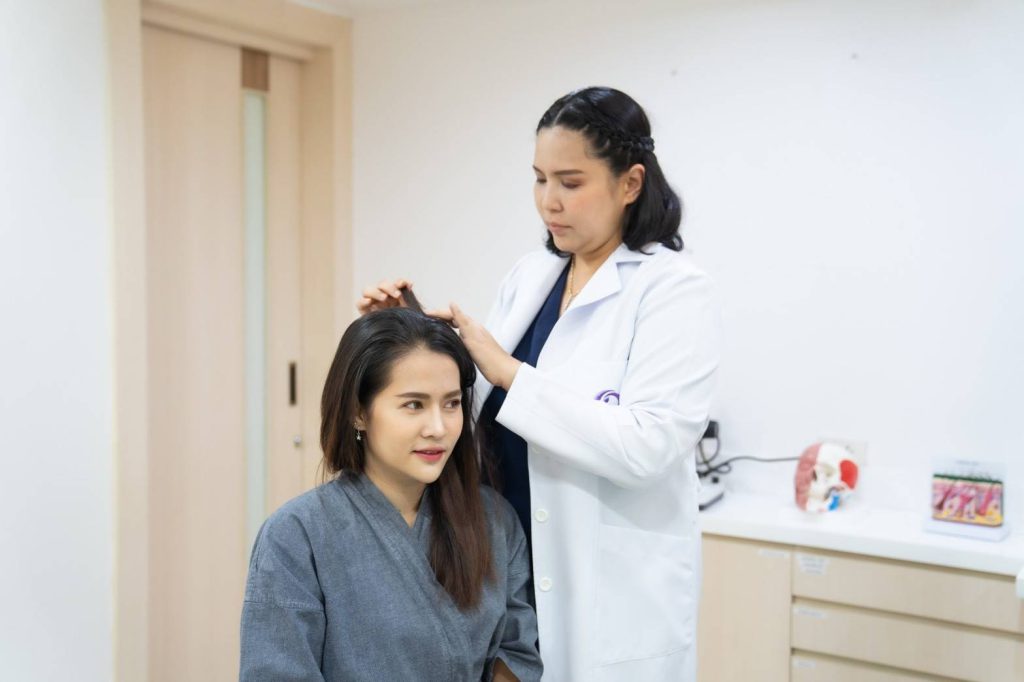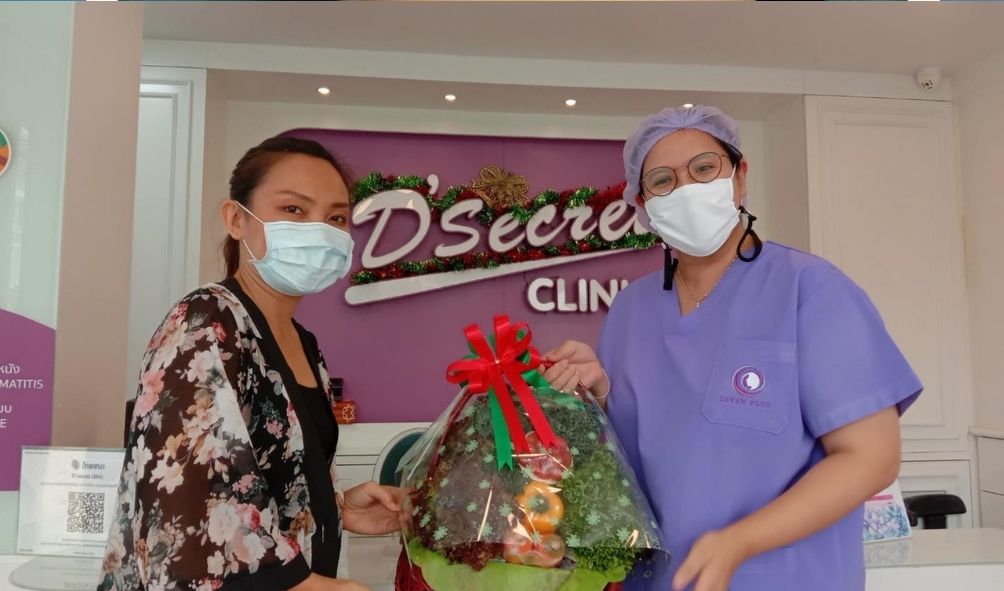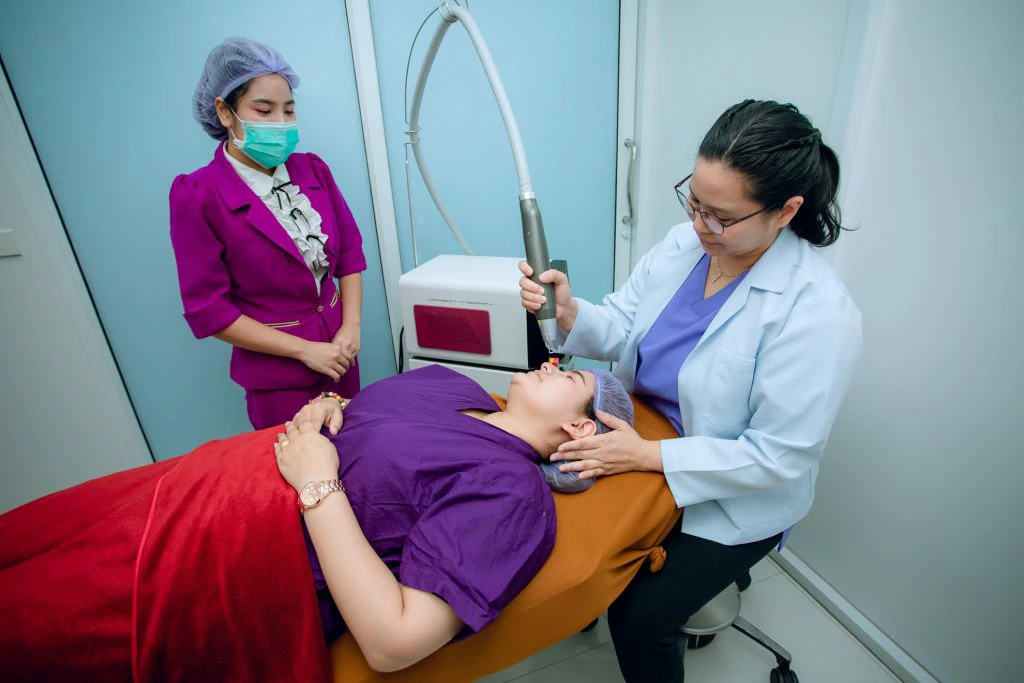Introducing nail treatment clinics, the best in Thailand.
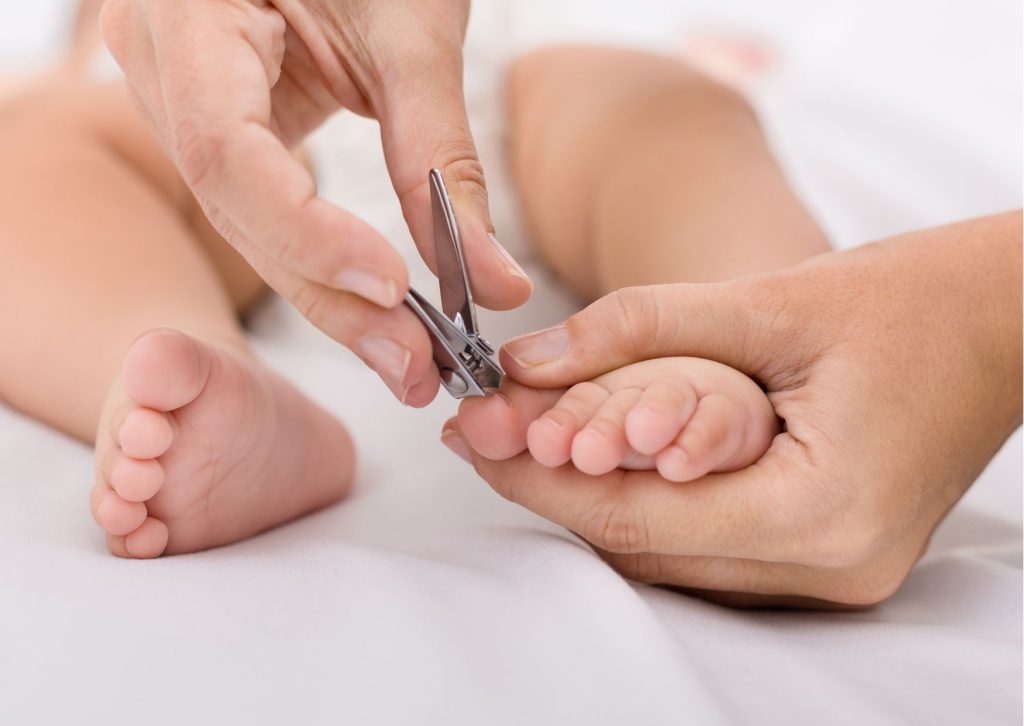
Nail diseases can impact both the appearance and health of nails, which are composed of a protein called keratin. There are various types of nail diseases, each with their own distinct symptoms and causes.
Treatment for nail diseases varies depending on the type and severity of the condition. It may involve medications such as antifungal creams or antibiotics, or in severe cases, surgery to remove the affected nail. Maintaining good nail hygiene, avoiding trauma to the nails, and wearing protective footwear can help prevent nail diseases.
Ingrown toenail disease
Ingrown toenail disease is a condition where the toenail grows into the skin surrounding the nail, leading to pain, swelling, and infection. This is a common condition that can affect people of all ages, but is more common in teenagers and young adults. Ingrown toenails can be caused by various factors such as improper nail trimming, wearing tight shoes, hereditary factors, or injury to the nail. Symptoms of an ingrown toenail include redness, tenderness, and swelling around the nail. In some cases, pus may also develop.
Causes of Ingrown Toenail Disease
Ingrown toenail disease can be caused by a variety of factors, including:
- Improper nail trimming: Trimming toenails too short or rounding them off at the edges can cause the nail to grow into the skin.
- Wearing tight shoes: Shoes that are too tight or narrow can put pressure on the toes and lead to ingrown toenails.
- Hereditary factors: Some people are more prone to developing ingrown toenails due to genetics.
- Trauma or injury to the toenail: Any injury to the toenail can cause it to grow abnormally and become ingrown.
- Poor foot hygiene: Not keeping feet clean and dry can increase the risk of developing an ingrown toenail.
- Fungal infections: Fungal infections of the nail can cause the nail to thicken and become ingrown.
It’s important to address the underlying cause of ingrown toenails to prevent recurrence. Proper nail care, wearing comfortable shoes that fit well, and maintaining good foot hygiene can help prevent ingrown toenails. If you have persistent or severe symptoms, it’s important to seek medical attention from a doctor or podiatrist.
Infected nail disease
An infected nail disease can occur when bacteria, fungi, or viruses infect the nail and the surrounding skin. Some common types of infected nail diseases include:
1. Fungal nail infections
A common nail disease caused by a fungal infection that can cause the nail to become thick, discolored, and brittle. In some cases, a fungal nail infection can lead to an infection in the surrounding skin.
2. Paronychia
An infection that affects the skin around the nail, causing redness, swelling, and pain. It can be caused by bacteria or fungi and can occur suddenly or develop gradually over time.
3. Onychomycosis
A fungal infection that can affect both the toenails and fingernails, causing them to become thick, discolored, and brittle.
4. Viral warts
Warts that develop on or around the nails caused by a viral infection. They can be painful and unsightly.
Symptoms of an infected nail disease may include pain, redness, swelling, and pus. Treatment options depend on the underlying cause of the infection and may include medications such as antifungal creams, antibiotics, or antiviral medications. In severe cases, surgery may be required to remove the infected nail. Proper nail hygiene, wearing protective footwear, and avoiding trauma to the nails can help prevent nail infections.
Curved nail disease
Curved nail disease is often a sign of an underlying medical condition, so it’s important to seek medical attention if you experience this symptom. Treatment for curved nail disease depends on the underlying cause. If it is due to an underlying medical condition, treating the condition may improve the appearance of the nails. In some cases, surgery may be required to correct severe curvature or deformities of the nails.
Causes of Curved Nail Disease
Curved nail disease can be caused by various factors, including genetics, certain health conditions, and lifestyle habits. Some of the common causes of this condition include:
1. Lung and Heart Conditions Curved nail disease is often associated with lung and heart conditions, such as chronic obstructive pulmonary disease (COPD), pulmonary fibrosis, and congenital heart disease.
2. Liver Disease Liver disease can also cause curved nail disease. Patients with liver cirrhosis or chronic hepatitis C are more likely to develop this condition.
3. Inflammatory Bowel Disease People with inflammatory bowel disease, such as Crohn’s disease or ulcerative colitis, are more prone to developing curved nail disease.
4. Thyroid Disease Curved nail disease can be a symptom of hyperthyroidism, a condition in which the thyroid gland produces too much thyroid hormone.
5. Genetics Curved nail disease can also be hereditary, passed down through generations in families.
If you have treated nails What are the dangers of making a mistake?
If you have treated nails, there are some dangers associated with making a mistake. Nail treatments such as manicures and pedicures can make your nails look great, but they can also cause damage if not done correctly. Here are some of the dangers of making a mistake when treating your nails:
1. Infection
One of the biggest dangers of making a mistake when treating your nails is the risk of infection. If tools and equipment used in nail treatments are not properly sanitized, it can lead to the spread of bacteria and fungus, causing infection in your nails and surrounding skin.
2. Nail Damage
Another danger of making a mistake while treating your nails is the potential for nail damage. If you file or clip your nails too aggressively or use the wrong tools, you can cause damage to the nail plate, cuticles, and surrounding skin, leading to pain, discomfort, and potential infection.
3. Allergic Reactions
Some nail treatments may contain ingredients that can cause allergic reactions in some individuals. These reactions can range from mild itching and redness to severe swelling, blistering, and even anaphylaxis in severe cases.
4. Ingrown Nails
Improper nail cutting or shaping can also lead to ingrown nails, where the nail grows into the surrounding skin, causing pain, swelling, and infection.
5. Nail Discoloration
Certain nail treatments such as acrylic nails, gels, or polishes can cause discoloration of the nails if not applied or removed correctly. This can be unsightly and take a long time to grow out.
Hair disease
Hair diseases are conditions that affect the hair and scalp, causing hair loss, damage, or other abnormalities. There are many different types of hair diseases, each with their own unique symptoms and causes. In this article, we will discuss some of the most common hair diseases and their treatment options.
1. Alopecia Areata
Alopecia areata is an autoimmune disorder that causes hair loss in patches. It occurs when the body’s immune system attacks hair follicles, causing them to shrink and stop producing hair. There is no cure for alopecia areata, but treatment options include corticosteroids, topical minoxidil, and immunotherapy.
2. Androgenetic Alopecia
Androgenetic alopecia is a genetic condition that causes hair thinning and balding in both men and women. It occurs when hair follicles are sensitive to dihydrotestosterone (DHT), a hormone that causes hair follicles to shrink and stop producing hair. Treatment options include oral medications like finasteride, topical minoxidil, and hair transplant surgery.
3. Scalp Psoriasis
Scalp psoriasis is a skin condition that causes red, scaly patches on the scalp. It occurs when skin cells build up and form scales, which can be itchy and uncomfortable. Treatment options include topical corticosteroids, phototherapy, and oral medications.
4. Telogen Effluvium
Telogen effluvium is a temporary hair loss condition that occurs when hair follicles enter the resting phase of the hair growth cycle. It can be caused by a variety of factors, including stress, illness, medication, and hormonal changes. Treatment options include addressing the underlying cause, using minoxidil, and reducing stress.
5. Tinea Capitis
Tinea capitis is a fungal infection that affects the scalp, causing hair loss and scaling. It is more common in children and can be spread through contact with infected persons or objects. Treatment options include antifungal medication, topical corticosteroids, and oral antibiotics.
6. Trichotillomania
Trichotillomania is a mental health disorder that causes people to compulsively pull out their own hair. It can occur on the scalp, eyebrows, eyelashes, or other areas of the body. Treatment options include cognitive behavioral therapy, habit reversal training, and medication.
The cause of skin disease
Skin diseases can have a variety of causes, including genetics, environmental factors, infections, allergies, and autoimmune disorders. In this article, we will discuss some of the most common causes of skin disease.
1. Genetics
Many skin diseases are hereditary and can be passed down through generations in families. Examples of genetic skin diseases include psoriasis, eczema, and ichthyosis.
2. Environmental Factors
Environmental factors such as sun exposure, pollution, and harsh chemicals can damage the skin and cause a variety of skin diseases. For example, prolonged sun exposure can lead to skin cancer and premature aging, while exposure to chemicals in cleaning products or beauty products can cause contact dermatitis or allergic reactions.
3. Infections
Infections such as fungal, bacterial, and viral infections can cause a range of skin diseases such as athlete’s foot, impetigo, and shingles. These infections can be spread through direct contact with infected persons or objects.
4. Allergies
Allergies can cause a variety of skin diseases such as hives, eczema, and contact dermatitis. Allergic reactions can be caused by a variety of triggers such as medications, foods, and insect bites.
5. Autoimmune Disorders
Autoimmune disorders occur when the body’s immune system attacks healthy tissues in the body, including the skin. Examples of autoimmune skin diseases include lupus, scleroderma, and dermatomyositis.
6. Hormonal Changes
Hormonal changes can also affect the health of the skin and contribute to the development of skin diseases. For example, hormonal changes during puberty can cause acne, while hormonal changes during pregnancy can cause melasma.
Advantages of nail treatment at SevenPlus Clinic and D’secert Clinic
Nail treatments can help you achieve healthy, beautiful nails, but it’s important to choose the right clinic for your needs. Seven Plus Clinic and D’Secret Clinic are two excellent choices for nail treatments, each with their own unique advantages. In this article, we will discuss the advantages of nail treatment at Seven plus Clinic and D’Secret Clinic.
Advantages of Nail Treatment at SevenPlus Clinic:
1. Experienced Staff
Seven Plus Clinic has a team of experienced and highly trained nail technicians who specialize in a wide range of nail treatments. They use high-quality products and techniques to ensure that your nails look and feel their best.
2. Wide Range of Services
Seven Plus Clinic offers a wide range of nail services, including manicures, pedicures, nail extensions, and nail art. They can also provide personalized nail treatments tailored to your specific needs and preferences.
3. Comfortable and Relaxing Environment
Seven Plus Clinic provides a comfortable and relaxing environment for clients, with comfortable seating, soothing music, and a range of refreshments available.
4. Affordable Prices
Seven Plus Clinic offers competitive and affordable prices for their nail services, making it accessible for everyone to get a great nail treatment.
Advantages of Nail Treatment at D’secret Clinic:
1. Certified and Professional Staff
D’Secret Clinic employs a team of certified and professional nail technicians who are trained in the latest techniques and technologies in nail care.
2. Advanced Technology
D’Secret Clinic uses the latest technology and equipment to provide advanced nail treatments such as laser nail treatment and nail fungus treatment.
3. Personalized Treatment
D’Secret Clinic provides personalized nail treatments tailored to each individual client’s needs and preferences. They also offer consultations with their nail experts to help you choose the best treatment for your specific needs.
4. Hygienic Environment
D’Secret Clinic maintains a hygienic environment for all nail treatments, with strict sanitation protocols and the use of high-quality products to ensure the safety and health of their clients.
Dr. Marinya Pongputphan
Education of Dr. Marinya Pongpudpunth
- Hair Restoration Training, Korea (2015)
- Thai Board of Dermatology, Ramathibodi Hospital (2013)
- Board of Dematopathology, Boston University, USA (2009)
- Master of Science in Dermatology, Boston University, USA (2006)
- Doctor of Medicine, Mahidol University (2001)
- Nail surgery training
- Laser expert training
- Hair expert training
- Boton university usa
Work experience of Dr. Marinya Pongpudpunth
- Dermatologist Mae Fah Luang Hospital
- Dermatologist Ramathibodi Hospital
- Dermatologist, Samitivej Hospital
- Dermatologist, Bangkok Hospital
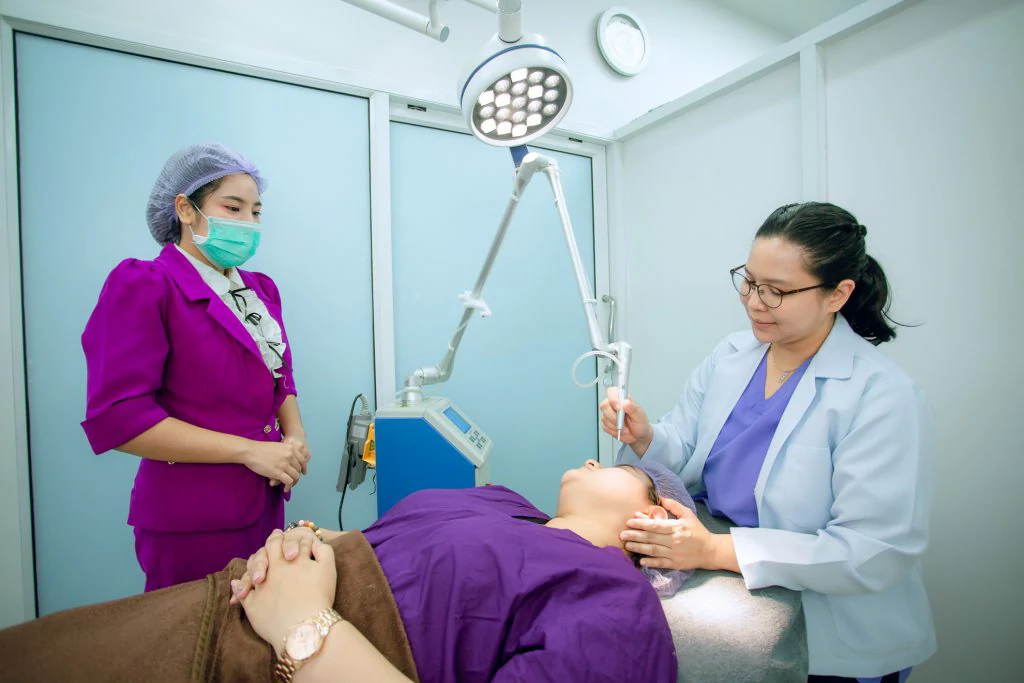
The best nail treatment clinic in Thailand
SevenPlus Clinic
1. SevenPlus Clinic is a renowned nail care clinic that prides itself on its team of skilled and experienced nail technicians. Their team is proficient in identifying and treating various nail diseases using high-quality products and advanced techniques.
2. The clinic is dedicated to providing top-notch nail care services to its clients, ensuring that their nails look and feel their best.
3. What sets Seven plus Clinic apart from other nail care clinics is their commitment to maintaining the safety and health of their clients.
4. They adhere to strict hygiene standards and use only high-quality and safe products in their treatments. This ensures that their clients can enjoy their nail care services without any worry or concern.
D’secert Clinic
1. D’secert Clinic is a nail treatment clinic that takes a holistic approach to nail care.
2. In addition to providing aesthetic treatments, the clinic also focuses on the health of the nails and surrounding skin.
3. Their philosophy is that healthy nails are beautiful nails, and they strive to educate their clients on proper nail care and maintenance.
4. One of the standout features of D’secert Clinic is their customized treatment plans tailored to each client’s individual needs and concerns.
5. They take the time to assess the condition of their client’s nails and skin, and provide personalized recommendations for the best course of treatment. This personalized approach ensures that clients receive the most effective and beneficial treatment for their specific needs.
6. D’secert Clinic has a team of professional and friendly staff who are knowledgeable and skilled in their field.
7. They provide excellent service to their clients, taking the time to answer questions and address concerns.
8. The clinic is also committed to maintaining a hygienic environment, with strict sanitation protocols and procedures in place.



